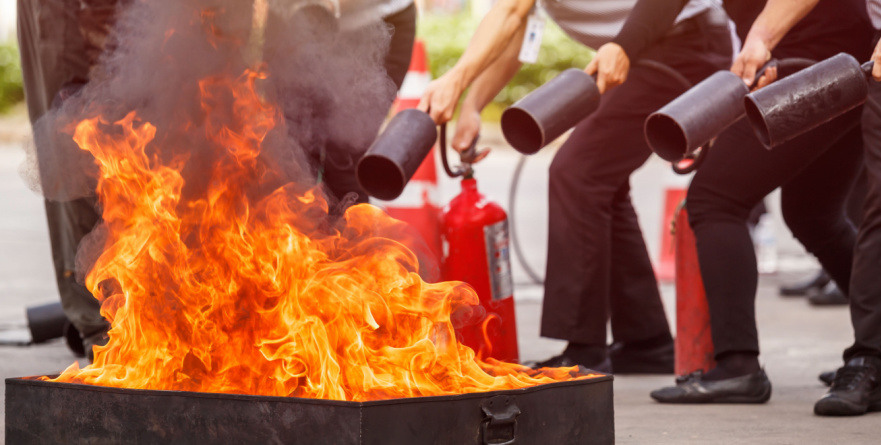Fire Prevention Week, established in remembrance of the Great Chicago Fire of 1871 and now recognized by Canada's Governor General, plays a pivotal role in spotlighting the significance of fire safety.
It's a dedicated week that unites communities, schools, businesses, our local government and fire departments to raise awareness about the dangers of fires and promote preventive measures.
By focusing on practices such as testing smoke alarms and planning escape routes, this week aims to reduce fire-related incidents, adapt to evolving fire risks, and ensure communities are equipped with the latest safety information, ultimately safeguarding lives and property.
The Importance of Fire Prevention Week
Preventing fires is essential for everyone to know. During a fire, every moment counts, as it can be the difference between safely putting it out and tragedy. Everyone is at risk during a fire, including children and older adults. Each family member must know proper fire safety and how to operate a fire extinguisher.
Fire Safety Tips at Home
The number one cause of fires in the kitchen is unattended cooking on the kitchen stove. For home cooking, follow these simple but crucial safety tips:
- Always be alert while cooking and pay close attention to what you are grilling, boiling, baking, broiling or frying. When leaving the kitchen for any reason, remove the pots and pans from the burner and turn off the stove.
- Check on your cooking food regularly during baking, roasting or simmering, and stay in the kitchen at all times. Use a timer if you are prone to forgetting about what you are cooking.
- Keep pot and pan handles toward the back of the stove while cooking and a clean lid nearby. If a grease fire starts, put the lid on the pot or pan if it's safe to do so. Turn off the burner, leave your home and call 911.
- Keep items that can catch fire, like wooden utensils, discarded packaging, oven mitts, or curtains, away from your stove.
- The area around your stove should be considered a kid and pet-free zone.
- Ensure your smoke alarms are working properly, and test them once a month.
- Have a home escape plan so each family member knows what to do in case of a fire.
- Knowing how to use a fire extinguisher before a crisis happens will ensure you're using it properly, so fire extinguisher training benefits everyone.
Fire Safety Tips in the Workplace
A fire can happen anywhere, and they're more prone in certain workplaces. Here are some fire prevention tips for the workplace:
- Only smoke in designated areas while using non-tip, large ashtrays. The contents should never be emptied into wastebaskets.
- Use Canadian Standards Association-approved power bars and avoid running extension cords across doorways or underneath rugs.
- There should always be only one power bar plugged into an outlet.
- Replace any electrical cords that are cracked or broken.
- Avoid octopus wiring.
- Use CSA-approved appliances in the workplace.
- Air heaters, computer equipment, and copy machines should have enough space around all sides of them for proper ventilation.
- Keep all appliances away from any combustible materials.
- Turn off or unplug computers, equipment and appliances at the end of each working day.
- Keep fire extinguishers available and provide fire extinguisher training for all employees.
AIP Fire Extinguisher Training
Recognizing the ubiquitous presence of fire extinguishers across workplaces and their pivotal role in home safety, AIP's Fire Extinguisher with Live Fire Training course is an essential learning experience for all.
Aligned with and surpassing the NFPA Standard, our course offers an in-depth understanding of the dynamics of fire and the vital role fire extinguishers play in preventing devastation. With Canada witnessing significant fatalities, injuries, and financial losses due to fire, this 4-hour course equips individuals with theoretical knowledge and hands-on experience.
Participants not only delve deep into fire chemistry and the distinct types of fires but also gain practical skills in identifying the right type of fire extinguisher for different scenarios, mastering fire-fighting techniques, and ensuring the effective use and inspection of fire extinguishers. In essence, this course is a comprehensive guide to harnessing the power of fire extinguishers for protecting both lives and property.

